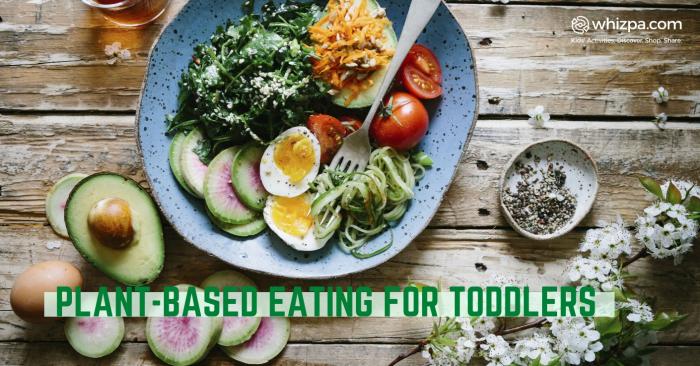
Plant-Based Eating for Toddlers
What plant-based foods should your toddler be eating? What foods will give them the proper nutrients?
Eating plant-based has been shown to be the best way to ensure a longer, disease-free life. But what about for those at the beginning of their adventure on this planet?
Your kids should eat a variety of foods, both to get the many nutrients that new bodies need and to discover new tastes that they like. Most importantly, be conscious of including what are known as the 9 Must Eat Nutrients for Children.
These 9 Nutrients include:
- Protein
- Healthy Carbs
- Healthy Fats
- Calcium
- Iron
- Folate
- Fiber
- Vitamin A
- Vitamin C
Protein builds our bodies, helps fight off infection and breaks down food into energy. It is found in legumes, nuts, seeds as well as soy products, some grains such as quinoa, wild rice and whole wheat breads and pasta. It is also found in vegetables with corn, broccoli, bok choy and potatoes being particularly high.
Carbs are our body's most important source of energy. And 'healthy' carbs are the ones we and our kids need. They are found in quinoa as well as banana, apple, oranges and sweet potatoes. Kidney beans and chickpeas are also a good source of healthy carbs.
Healthy fats are needed in small amounts as a source of energy and also because some vitamins like vitamin A, D, E and K are fat-soluble, meaning they need fat to be absorbed by our bodies. Sources of healthy fats include nuts, seeds, avocado and coconut. Omega-3 is a fat that's been shown in the Journal of Nutritional Biochemistry to contribute to better brain function in children ages 2-6 years old. Flaxseed is a good source.
The intake of calcium during childhood affects how much bone loss we suffer from later in life. Good plant-based sources include soybeans, other beans like kidney beans and lentils as well as almonds, kale, bok choy and cabbage.
Iron builds healthy blood that helps carry oxygen to the cells in our body. Healthy plant-based sources include whole grains like whole wheat bread and pasta as well as spinach, beans and nuts.
Folate is essential for the healthy development of our cells, which is why it's also very important for moms-to-be. Plant-based sources include spinach, kidney beans, asparagus and chickpeas.
Fiber is really important and until fairly recently was a little overlooked. Yes, it helps with bowel regularity and it also is being shown to play a large role in reducing the risk of cancer and heart disease as we age. Great sources include chickpeas, lentils, kidney beans as well as pears, flaxseeds and banana.
Vitamin A is good for our eyes, our skin and helps prevent infection. Great plant-based sources include carrots, sweet potatoes, red bell peppers and goji berries.
Vitamin C is great for boosting our immune system and protects our cells from free-radical damage. It's also important for helping our bodies absorb iron, so spritz some lemon juice on that spinach! You can also find it in tomatoes, potatoes and mangos.
About the Author
Michele Wisla is a Plant-Based Nutrition Coach and expert in making plant-based food taste delicious, who runs the company Our Conscious Kitchen Limited. Her passion is enabling women who are discouraged by their unhealthy food choices feel confident finding or preparing plant-based meals that make a difference to their future health as well as the health of the planet.








